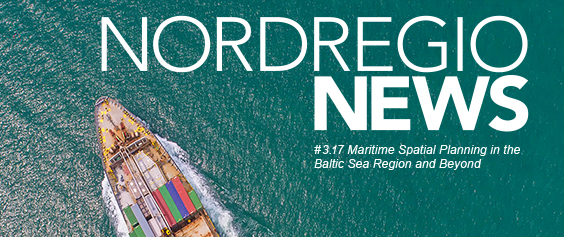The Maritime Spatial Planning Directive (2014/89/EU) was launched to create a common framework for maritime spatial planning (MSP) in Europe. The case of the Adriatic and Ionian Region (AIR) is emblematic of the peculiar challenges to be faced while implementing MSP in the region.
The AIR is crowded by many typical marine and maritime uses concentrated in a relatively small area that is densely populated: transport of goods and passengers, fisheries, aquaculture, oil and gas, energy and communications cables, coastal tourism, military uses, sand extraction, cultural heritage and protected areas. Moreover, the AIR is a hotspot for conservation because it is characterized by high biodiversity, which is conditioned by high heterogeneity in terms of bathymetry, coastal morphology, sediment composition, circulation and trophic conditions (Mosetti and Lipizer, 2014).
In 2014, the establishment of a European Union Strategy for the Adriatic and Ionian Region (EUSAIR), which was promoted and coordinated by the European Commission with a strong and direct involvement of Member and non-member States of the region, delivered the Action Plan of the EUSAIR (Communication (COM(2014) 357 final) (EC, 2014a; EC, 2014b). The action plan provides a framework for a coherent macroregional strategy towards smart, sustainable and inclusive growth in the AIR. The plan is directly linked to the key economic drivers of the AIR and is structured in four pillars: Blue growth (Pillar 1); Maritime transport, intermodal connections and energy networks (Pillar 2); Environmental quality (Pillar 3); and Sustainable tourism (Pillar 4). The plan recognizes that the development of maritime uses can be achieved only through the sustainable coexistence of maritime activities and an ecosystem-based approach. MSP is explicitly cited as a cross-cutting tool to implement the plan, both at national and cross-border level.
Article continues below
Croatia, Greece, Italy and Slovenia, as Member States, are called to implement MSP, taking into consideration the EUSAIR Strategy, to collaborate and co-operate with each other and non-member States, such as Bosnia-Herzegovina, Montenegro and Albania, which share a significant part of the AIR.
A key concern relates to the governance structure that will be created to support the process of implementing EUSAIR through MSP, to cope with the co-ordination of actions in the areas where countries share responsibilities related to natural marine resources. At present, Albania, Greece, Montenegro and Italy have not claimed any exclusive economic zone (EEZ) or sui generis zone beyond the territorial sea (Barbanti et al. 2015). Consequently, parts of the Adriatic–Ionian waters still fall under the regime of the “high seas”, even though the states have the right to exploit marine resources on the continental shelf to the midline, and coastal states do not have any right (or duty) beyond those that are generally applicable to all states. In some cases, coastal states have not agreed upon maritime boundaries delimiting their respective maritime entitlements. One of the main disputes in the area concerns the definition of maritime boundaries between Croatia and Slovenia at Piran Bay.
The countries involved in MSP are characterized by different planning cultures in territorial and spatial planning, with different planning tools that work at different scales.
The existing multilevel, multiscale and multisectoral framework of competences is differentiated by country; therefore, the level of complexity in organizing the governance structure is high.
The capacity of Member States to cooperate and collaborate proactively will strongly influence the effectiveness of the MSP implementation in the AIR in achieving the EUSAIR targets, while simultaneously coping with blue growth and environmental quality.
The European Commission is promoting several initiatives in the AIR, to build a path towards collaboration between Member States. Recently, project SUPREME (Supporting Maritime Spatial Planning in the Eastern Mediterranean) involves public authorities in charge of MSP, as designated by the governments of Croatia, Greece, Italy and Slovenia, and the UNEP/MAP Barcelona Convention. SUPREME focuses on: 1) Supporting the implementation of MSP in EU Member States; and 2) Launching and carrying out concrete and cross-border MSP initiatives between Member States. SUPREME will test operative solutions to transboundary concerns in implementing MSP, while building dialogues between the relevant authorities.
This article is a part of Nordregio News #3.17. Read the full issue here:



